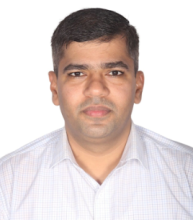Drought is one of the most complex disasters affecting various aspects of socioeconomic development, especially in agrarian economies like India. Unlike other rapid-onset disasters, drought develops slowly and is difficult to detect initially, causing significant long-term impacts across all sections of society. It affects agricultural production, drinking water availability, livestock, ecosystem services, rural livelihoods, and industry at large. Given India's heavy dependence on monsoon rainfall, with nearly 60% of net sown area being rainfed, an accurate assessment and timely declaration of drought are crucial for deciding on relief measures and mitigating long-term damages. The frequency and severity of drought events have increased in recent decades owing to climate variability, inadequate water management, and increasing land degradation. According to the India Meteorological Department (IMD), the country experienced 27 major meteorological drought years between 1875 and 2020. Droughts in 1972, 2002, 2012, and 2015 have led to crop losses and the migration of rural populations in India. Maharashtra is one of the most drought-prone states in India, and has witnessed recurrent droughts over the years that have significantly impacted agriculture and allied activities. Nearly 40% of the state is classified as drought-prone: over 64% of the population relies on rainfed farming, and even moderate rainfall deficits have severe consequences. Despite the state's high severity and frequency of drought, the monitoring and declaration processes exhibit significant challenges. In this background, the seminar aims to put a larger context of drought disaster management in the Indian context, stimulating discussion on drought monitoring and the declaration process through a case study.

Dr Parmeshwar D. Udmale is an Assistant Professor at C-TARA, IIT Bombay. He earned his PhD degree in Integrated River Basin Management from the University of Yamanashi, Japan, under the MEXT Scholarship Program. He is a recipient of the JSPS Postdoctoral Fellowship Award at Kyoto University for 2016-18. He has taken multiple research roles in institutes like RIHN Japan, Kyoto University Japan, and AIT Thailand before joining as an Assistant Professor at C-TARA, IIT Bombay. His transdisciplinary research includes themes such as agriculture and water, disaster risk research (floods and droughts), drought monitoring and impact assessment, food security, food supply chains, water and rural livelihoods, and monitoring SDGs at the local scale.





